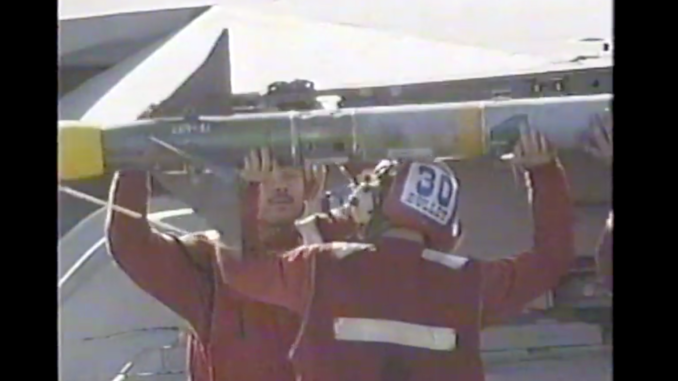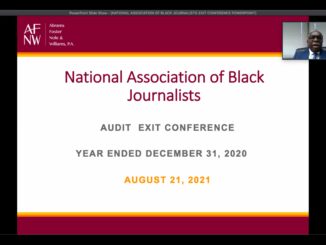
By Daniella Johnson & Sheila Hodges
NABJ Monitor
As the Taliban declares victory over Afghanistan, former 2007 NABJ President, Barbara Ciara reflects on her coverage of the start to America’s decade-long war with the terrorist group.
President Joe Biden announced that he will be following through with the agreement the Trump administration made with the Taliban to have all U.S. Troops leave Afghanistan by May 1, 2021. As tensions rise in Afghanistan, many wonder where that leaves American assistance and aid.
Ciara remembers the night that the bombing campaign started vividly, stating that the patriotism and emotions amongst the military and reporters was at an all-time high.
“People were emotional. And typically, when you deal with men and women in the military, they are methodical and purposeful, but they don’t have that emotion on their sleeves,” Ciara said. “ And this was different from the commander on down. People were very emotional about the mission.”
Thinking on the fall of the Twin Towers, Ciara recalls witnessing a unique sense of patriotism among those aboard the USS Roosevelt.
When the war first began, Ciara and many others were under the impression that the war between America and Afghanistan would be short as the only goal was to assassinate Osama Bin Laden and secure Afghanistan. According to Ciara, there was a mutual understanding in the air that getting to Afghanistan, completing the mission and getting back home was the expectation.
“So if you look at what’s happening now and trying to manage that expectation, I think there would be some sense of disappointment,” Ciara said. “The question might be for them, did we achieve our mission now, for many people, the mission should have ended with the assassination of Osama Bin Laden.”
However, as time passed and policies changed, Ciara notes that the mission in Afghanistan seemed to change as well. As a veteran reporter, Ciara has been privy to witness all four administrations, how they handled the Taliban controversy as well as how the timeline in this war matters.
The George W. Bush administration handled and minimized the active threat of the Taliban, allowing the Obama administration to seemingly eradicate it by assassinating Bin Laden. Then, the Trump administration made a deal with the terrorist group to vacate Afghanistan, leaving Biden the choice to either follow through with that agreement or continue the war.
“And now we are at a place where the United States is withdrawing, many of the folks in the military community that I cover feel like it’s messy, and that’s just what I’m hearing from the military community,” Ciara said. “I take my own opinion out of it, because when people are very close to the conflict and they’ve covered it and they’ve had many tours of duty, I think it’s our job to listen and have a takeaway.”
This confliction leaves the question of what will happen to Afghan people and their society if the Taliban continues their terror. According to Ciara, going forward the world is going to witness the lives of many who will have to adjust to new territories, language and immigration policies in the future.
“Those are going to be the stories that we tell in the future of a recommitment to those people who risk their lives to help out people on the ground,” Ciara said. “So it’s going to be another layer of the immigration issue that we cover so much here in the United States, because if those planes leave, they have to land somewhere.”




Be the first to comment